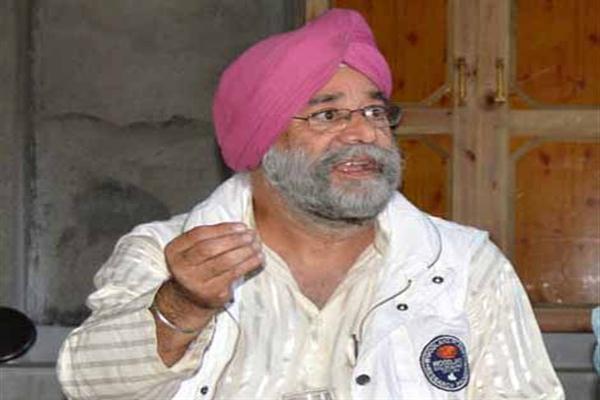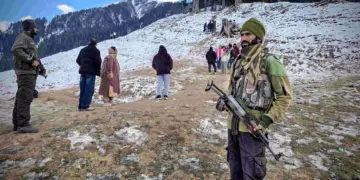Srinagar : The All Parties Sikh Coordination Committee (APSCC) Tuesday declared that it will field independent Sikh candidates on a few seats in Kashmir to ensure the community has its representation in the legislature.
The Sikh body also urged the majority community to back their candidates in the upcoming assembly elections, although the dates for these elections are yet to be finalized and announced by the Election Commission of India.
“As the Sikh community in J&K lacks representation in the state assembly and has consistently faced discrimination from the successive regimes including the NC, PDP, Congress, and ruling BJP, the APSCC has decided to field independent Sikh candidates on a few seats to ensure the Sikh community has its representation in the legislature,” APSCC chairman, Jagmohan Singh Raina said at a press conference in Srinagar.
Instead of stitching an alliance with any political party, APSCC, he claimed, will field independent candidates on a few seats where the Sikhs have a significant electorate.
The Sikh community, Raina claimed, has always supported regional political parties in their bids to win the Legislative Assembly and Lok Sabha elections in J&K. But none of them have bothered to respond to their concerns, and as a result, the unemployment rate of Sikh youth is far higher than it should be, Raina claimed.
“We had been calling for reservation of seats for the Sikh community in the erstwhile state assembly, but regrettably, the discriminatory political parties that use the Sikh vote-bank to win elections have never bothered to address this long-standing demand of ours,” he added.
Sikh candidates in the forthcoming assembly elections in J&K would aim to teach a lesson to those, who he alleged, “have discriminated against the minority community”.
“We have 17,000 votes in south Kashmir’s Pulwama district followed by 14,000 in north Kashmir’s Baramulla and 9,000 in Srinagar’s Lal Chowk assembly constituency. Since we have decided to field independent candidates, we appeal to our Muslim brethren in Kashmir to back our candidates and send them to assembly so that our voices are collectively raised and our issues resolved,” Raina said.
After winning elections, he claimed, the leaders of all the political parties in J&K “become appointees of the federal government, and lack the courage to speak out for their own people in the assembly or parliament!”
“Why should we rely upon them? What have they done for us? I can promise you that, once our candidates are elected, they will not speak just for the Sikh community but bring up the concerns affecting the majority population as well,” said Raina.
While addressing the Sikh community of J&K, the APSCC said that they will announce the seats and the name of the candidate after the things have been finalised.
Condemning the reservation policy issued by the government, the APSCC said that it is unfortunate that the seats have been reserved for scheduled caste, scheduled tribe, and Kashmir Pandits while the Sikhs have been left out.
The APSCC also said that the “discriminatory job packages should be probed and that they will pressure the administration to change it.”
It also said that after the abrogation of Article 370, a shadow has been cast over the Punjabi language in J&K.
“Since the language was recognized by the constitution of erstwhile State of Jammu & Kashmir, it does not hold ground since Jammu & Kashmir has been downgraded into a union territory,” read a statement by the APSCC.
They demanded the restoration of the Punjabi language which they said has a strong base in education models of the overall education system of J&K.
The APSCC also demanded that sufficient electricity should be provided to the people of J&K.
“The National Hydroelectric Power Corporation (NHPC) should supply 50 percent of the power produced in Jammu & Kashmir projects to the people of this union territory. This will solve the power shortage issue,” the APSCC said.








